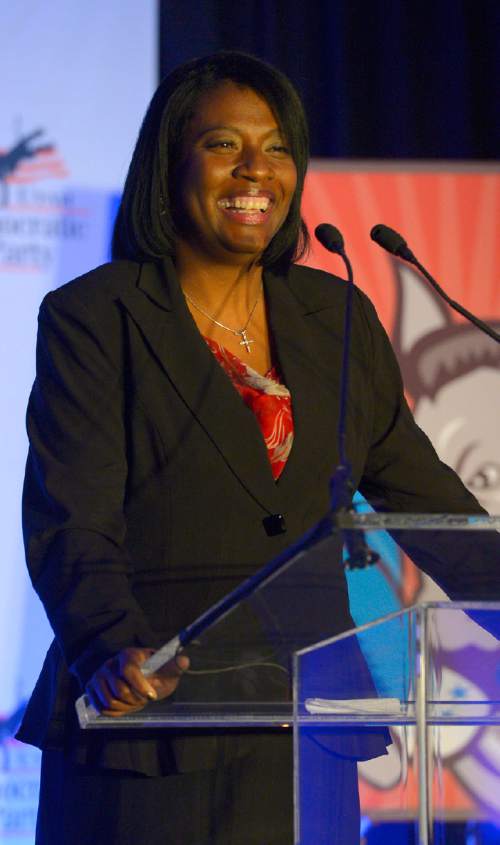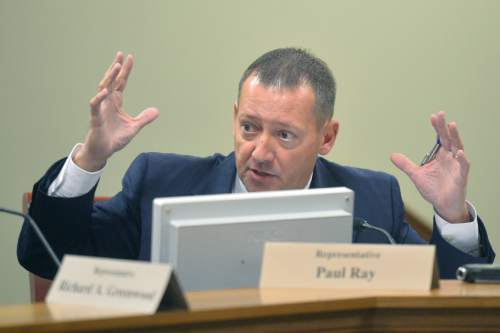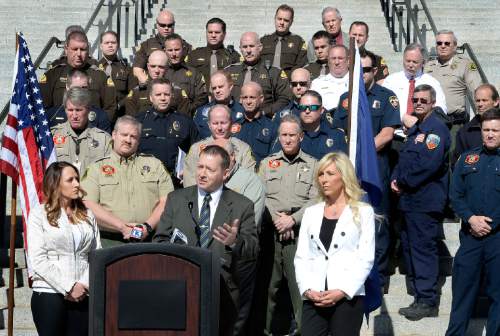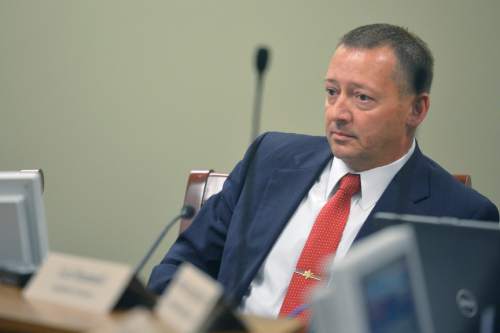This is an archived article that was published on sltrib.com in 2015, and information in the article may be outdated. It is provided only for personal research purposes and may not be reprinted.
After less than a minute of debate, the Senate gave final passage Tuesday to a controversial bill to reinstate the firing squad as an execution method.
The Senate voted 18-10 to pass HB11, and sent it to Gov. Gary Herbert for his signature. It earlier passed the House 39-34, with just one vote to spare after intense debate that focused mainly on whether to abolish the death penalty.
HB11 allows using a firing squad if the drug cocktail necessary for lethal injection is not available at least 30 days before a scheduled execution. Foreign manufacturers of the drugs used in lethal injection have worked to prevent their use in executions.
The governor's office indicated support, at least in principle, for the measure, although spokesman Marty Carpenter said Herbert normally does not say whether he will sign a bill until he reviews it.
"We are dedicated to pursuing all reasonable and legal options to obtain those substances to make sure that, when required, we are in a position to carry out this very serious sentence by lethal injection," Carpenter said.
"If those substances cannot be obtained, this proposal would make sure that those instructed to carry out the lawful order of the court and the carefully deliberated decision of the jury can do so."
Sen. David Hinkins, R-Orangeville, the Senate sponsor of the bill, spent just 45 seconds explaining it. No one asked him any questions or asked to speak.
During voting, Senate Minority Leader Gene Davis, D-Salt Lake City, said he wished the bill was one to do away with the death penalty, instead of offering an alternative execution method. He voted no.
The firing squad was legal in Utah until 2004 when the law was changed to make lethal injection the primary means of execution. Current Utah law allows a return to the firing squad only if lethal injection is ruled unconstitutional, although it is allowed as an option for those on death row who selected death by firing squad prior to the 2004 change. Oklahoma has a similar law — allowing a firing squad if lethal injection and electrocution are ruled unconstitutional.
During earlier House debate, the bill's sponsor, Rep. Paul Ray, R-Clearfield, said, "This bill, first of all, is not a debate on whether or not to have the death penalty." But it quickly evolved into precisely such a debate.
"The death penalty disproportionately affects my community," said Rep. Sandra Hollins, D-Salt Lake City, the first female African-American elected to the Utah House. "The death penalty also is not fairly given across socioeconomic status, racial or gender lines. … I refuse to vote yes on a bill that gives a tool to carry out the death penalty."
House Minority Leader Brian King denounced the firing squad as "barbaric."
States such as Oklahoma, Arizona and Ohio have botched executions by trying to mix their own chemical compounds to take the place of the drug cocktail that currently is difficult to obtain and, at times, is unavailable. In one case, it took nearly two hours for the inmate to die.
"We are facing a situation where we are going to have to go to court, and it's going to cost millions of dollars for the state of Utah to defend what we're doing," Ray said in arguing for a backup to lethal injection.













